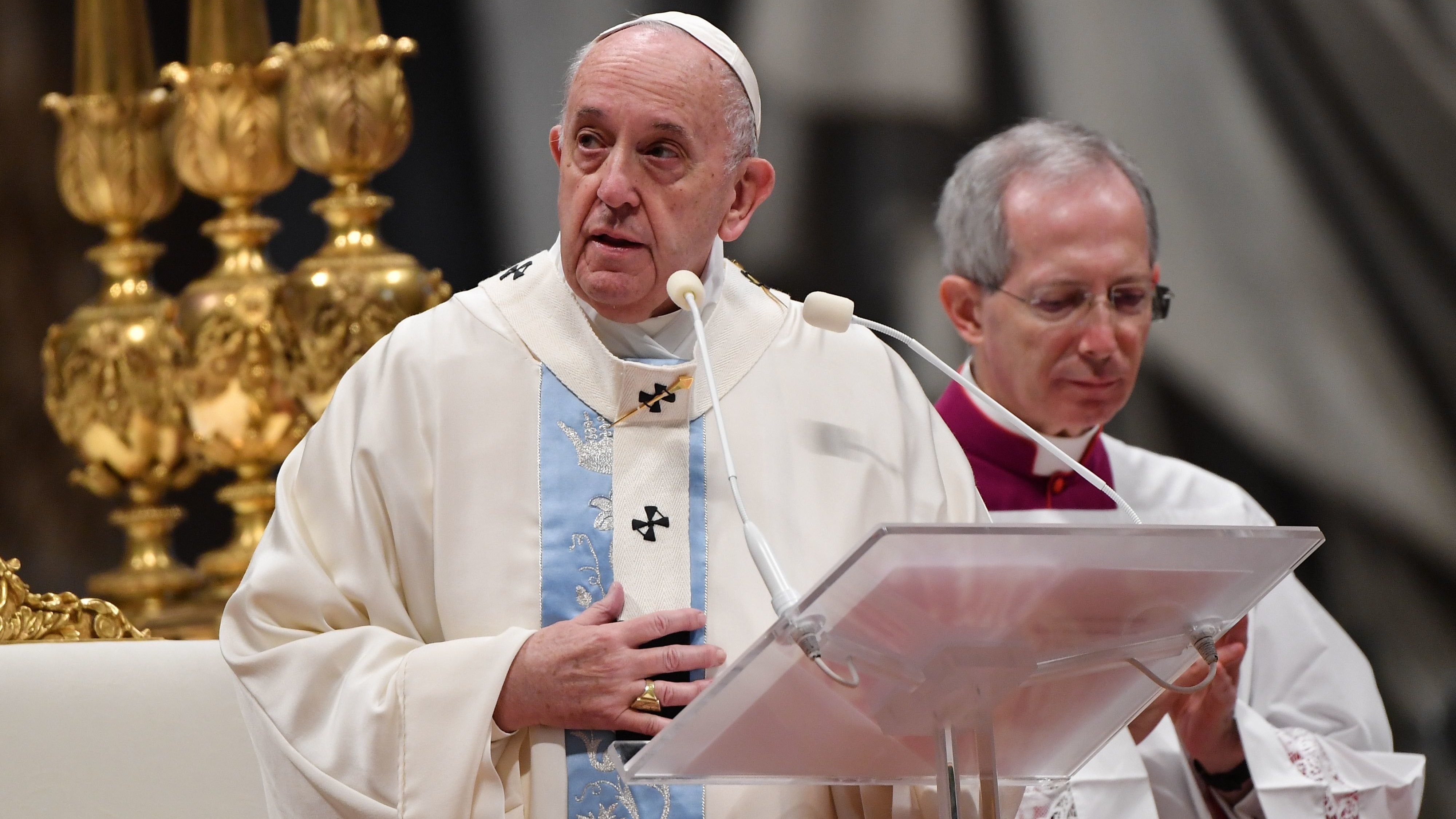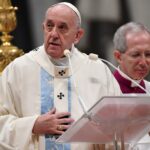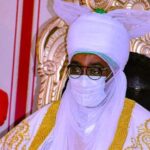Peace I leave with you; my peace I give you. I do not give to you as the world gives. Do not let your hearts be troubled and do not be afraid (John 14:27). Days before the US led invasion of Iraq President Bush ordered the evacuation of all embassies and diplomatic mission in Iraq and ordered the withdrawal of the representative of UN led International Atomic Energy Agency (IAEA). Pope John Paul II now Saint John Paul II sent a special delegation to the White House in a bid to avert the last minute preparations for the war. The rest as we now know is history. When all embassies and diplomatic missions were closed, the Holy See (The Vatican) was the only sovereign state to keep her ambassador in Iraq. And the Holy See stayed with the people and government of Iraq all through the period of the war.
Nearly twenty years since the US led invasion of Iraq, “Peace” we may say has returned to Iraq. The Holy Father Pope Francis set his feet in Iraq as the first Pontiff to visit, a sign that normalcy has overtaken the people and the system. Pope Francis spent four days in the Middle Eastern nation during which he traveled north and south as “a pilgrim seeking peace, fraternity and reconciliation”, as he himself has said. His intense schedule foresaw moments of prayer and encounter with Christian communities and representatives of the Catholic Church in Iraq, as well as meetings to foster interreligious dialogue. My best photo was the silent seating between The Shiite leader Ayatollah Sistani and Pope Francis. Earlier on he met with President Barham Ahmed Salih Qassim at the Presidential Palace. These optics are very good for the senses, they command a pause to religious violence and bigotry, they answer the perennial question of intolerance, and exclusion base on religion, ethnicity and tribe. The optics speaks directly to the never ending yearning for peace that is caused by injustice and persecution, perpetrated by both some state and non-state actors.
As some world leaders are actively engaged in pointing to all of us the importance of brotherhood and inclusion, we are equally taking aback by so many elements of radicalism across the globe. Structures of injustice and double standards are deeper causes of war, and internal strife and restlessness. Peace is not merely the absence of war. Leo Tolstoy in his masterpiece War and Peace; mirrors the spiritual biography of the Russian writer, as they search for the meaning of life and death in a world shaken by Napoleonic wars and injustice. As the title of Leo Tolstoy’s novel War and Peace promises, the book develops in two dimensions. The ‘’war’’ dimension relates to the 1812 French invasion of Russia, while the ‘’peace’’ concerns the life of the Russian society against the backdrop of that invasion. The word ‘’peace’’ (mir) in Russian has multiple meanings: mir as the state of no-war; mir as society; mir as the world. Indeed, the narrative shifts between the world of the Napoleonic wars, the world of the Russian society, and the inner spiritual worlds of the novel’s main characters: Russian aristocrats Andrey Bolkonsky, Natasha Rostova, and Pyotr (Pierre) Bezukhov. The key themes in War and Peace develop through all these worlds, creating a complex and multilayered texture.
Two central male characters of the novel, Andrey Bolkonsky and Pierre Bezukhov, mirror Tolstoy’s own spiritual biography. These characters question everything and hold themselves to the highest moral standard. In his search for meaning, Pierre concludes that most people live ‘’like soldiers under fire,’’ distracting themselves from thoughts of death by gambling, horses, and parties. At the end of the book, Pierre finds his life’s purpose in working on his land and raising a large family. When we first meet Prince Andrey, he is a handsome and ambitious young officer, ready to sacrifice everything for a minute of glory. A near-death experience at the battle of Austerlitz makes him recognize his vanity. Going through multiple transformations in his spiritual search, towards the end of the novel, dying from war wounds, Andrey achieves complete harmony with the world.
In the system of values Tolstoy creates, love has a power to awaken the characters to a new life. Countess Natasha Rostov is the heroine of the only love drama in the book. She brings such awakening to Andrey Bolkonsky, but only for a short while. Tolstoy leads Natasha, his favorite female character, through trials of love, disillusionment, public shame, war deprivations, and, ultimately, maturity. At the end of the novel, Natasha, married to Pierre Bezukhov, is a down-to-earth mother of a large family with soiled baby sheets in her hand, revealing the transformative aspects of love.
For us as Christians there is no substitute to love. Love is the foundation of the Christian faith. Even in the face of the worst provocation. Yes we seek justice. Yes we seek fairness. Yes we have lived with persecution. And yes we may continue to live with it, but we will not lose sight of our command to love even the worst of our enemies for that is the ultimate the guarantee for peace. In his ever classical teaching on loving our enemies Jesus said: “But I say to you who are listening, love your enemies. Do good to those who hate you, bless those who curse you, pray for those who are cruel to you. If anyone slaps you on one cheek, offer him the other cheek too. If someone takes your coat, do not stop him from taking your shirt. Give to everyone who asks you, and when someone takes something that is yours, don’t ask for it back. Do to others what you would want them to do to you. If you love only the people who love you, what praise should you get? Even sinners love the people who love them (Luke 6:27-32).
As the Pope and so many Politicians and Religious figures have tried to demonstrate the importance of interreligious dialogue, we must do everything within our systems to go beyond the optics. There are deeper sources of potential conflicts, across the globe. The Pope said in his address to the Iraqi President and to the Iraqi People, “Nobody should be made to feel he is a second class citizen” St Paul said to the Galatians: There is neither Jew nor Gentile, neither slave nor free, nor is there male and female, for you are all one in Christ Jesus (3:28). These concept will bring about social and world peace. When no one is made to feel that he or she is less important.
Fr Stephen Ojapah is a priest of the Missionary Society of St Paul. He is equally the director for Interreligious Dialogue and Ecumenism for the Catholic Diocese of Sokoto, a member of IDFP. He is also a KAICIID Fellow. ([email protected])

 Join Daily Trust WhatsApp Community For Quick Access To News and Happenings Around You.
Join Daily Trust WhatsApp Community For Quick Access To News and Happenings Around You.


